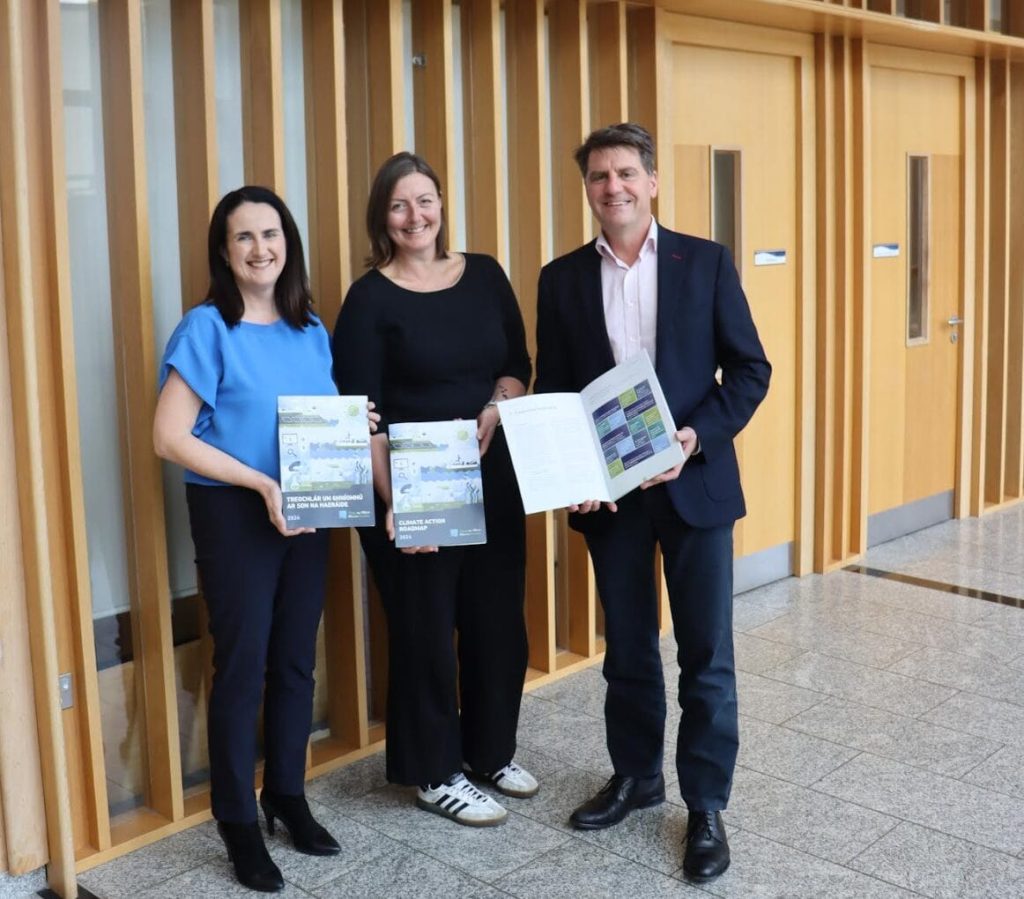
The Marine Institute has published its Climate Action Roadmap 2024, setting out the organisation’s key operational achievements in relation to sustainability and energy.
These include an overall energy efficiency reduction of 39.7% compared to the 2009 baseline, successful installation of Solar PV Rooftop systems (providing green electricity to facilities in Oranmore and Newport), and a successful trial using Hydrotreated Vegetable Oil (HVO) as an alternative fuel for the Institute’s research vessels. HVO is a low-carbon biofuel that serves as a replacement for fossil fuels.
Other energy-saving projects include a boiler upgrade at Oranmore, LED lighting upgrades throughout Oranmore and Newport buildings, and air conditioning upgrades in Oranmore (with centralised control to meet the requirements of the EU Energy Performance of Buildings Directive).
CEO of the Marine Institute, Dr Rick Officer, said, “The Marine Institute’s Climate Action Roadmap 2024 demonstrates our commitment to delivering on responsibilities outlined in the Climate Action Plan 2024, and the Climate Action Mandate. Sustainability is at the heart of how we work in the Marine Institute, and a guiding principle for our organisation.
“We are extremely proud of our progress over the past 12 months in the vital areas of sustainability and energy. Our achievements result from the combined effort and innovation of colleagues working across the Institute.”
The Climate Action Roadmap 2024 also details how the Institute’s Oranmore facility has reduced its energy consumption by 41% (March 2024), relative to the 2015 baseline.
Four more teams commenced the process for My Green Lab accreditation over the past year, leading the way in sustainability from a laboratory perspective. The programme seeks to reduce the environmental impacts of laboratories – through a combination of organisational initiatives and behaviour change programmes.
A core challenge for the Institute in reducing its overall consumption is the energy required to operate its research vessels (RV Tom Crean and RV Celtic Explorer). The continued activity of these vessels is essential to delivering on the organisation’s remit to protect, and contribution to marine sustainability.
Vital work carried out on the vessels focuses on sustainable seafood, how we manage our ocean space (marine spatial planning), how we protect marine biodiversity (marine protected areas), offshore renewable energy (decarbonisation of energy systems), and how the ocean impacts climate change.
Included in the Climate Action Roadmap 2024 is the Marine Institute’s Energy Policy. Having this policy in place demonstrates the commitment of the organisation as a whole in the implementation of the ISO 50001 Energy Management System. The Marine Institute aims to achieve certification of ISO 50001 during 2025.
You can download the Climate Action Roadmap 2024 here.


